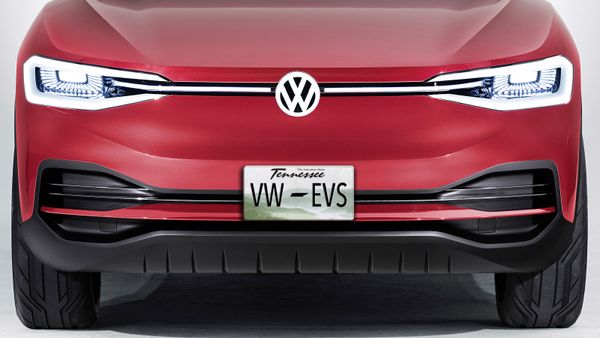
From the Detroit auto show, Volkswagen announced this week plans to invest $800 million in its Chattanooga, Tennessee plant, expecting to create 1,000 jobs in the United States.
The German automaker will not only expand its existing plant in Tennessee to prepare for “an electric mobility future,” but it will make the facility its North American base for manufacturing electric vehicles, executives said.
Volkswagen has 2022 circled on the calendar as the target to start manufacturing electric vehicles at the Tennessee-based plant.
Tennessee’s outgoing and incoming governors were both in Detroit for the announcement at the North American International Auto Show.
“The U.S. is one of the most important locations for us, and producing electric cars in Chattanooga is a key part of our growth strategy in North American, Volkswagen CEO Dr. Herbert Diess said in a statement.
“The management team, led by Scott Keogh, is committed to continuing to increase our market share in the coming years. Together with our ongoing investments and this increase in local production, we are strengthening the foundation for sustainable growth of the Volkswagen brand in the U.S.”
In addition to the expansion in the U.S., Volkswagen says it will build the “first dedicated EV production facility” in Zwickau, Germany. The automaker will also add dedicated EV facilities in the Chinese cities of Anting and Foshan by 2020, and in the German cities of Emden and Hanover by 2022.
Volkswagen currently builds builds its Atlas SUV and the Passat sedan in Chattanooga. The automaker says it will add production of the Atlas Cross Sport SUV at the plant later this year.
In Germany, VW says it will invest about $50 billion through 2023 toward the development and production of electric vehicles and “digital services.”
“The shift toward electric vehicles is a trend that can be seen worldwide, and Volkswagen’s decision to locate its first North American EV manufacturing facility in Chattanooga underscores Tennessee’s manufacturing strength and highly-skilled workforce,” Tennessee Gov. Bill Haslam said in a news release.
“As one of Hamilton County’s top employers, these additional 1,000 jobs will have a lasting impact on the region. I thank Volkswagen for its partnership and also applaud the company for its ongoing commitment to education and workforce alignment, which helps Tennessee build a pipeline of talent for years to come.”
The announcement came about 24 hours before Volkswagen and Ford confirmed the two had agreed to a “strategic alliance.” The two will work together on medium-sized trucks, commercial vans and autonomous technology.
Executives said the two would remain separate companies. The alliance does not include any cross-ownership. Hackett said Ford and Volkswagen are “two separate companies with deep ties to our respective countries.”
























